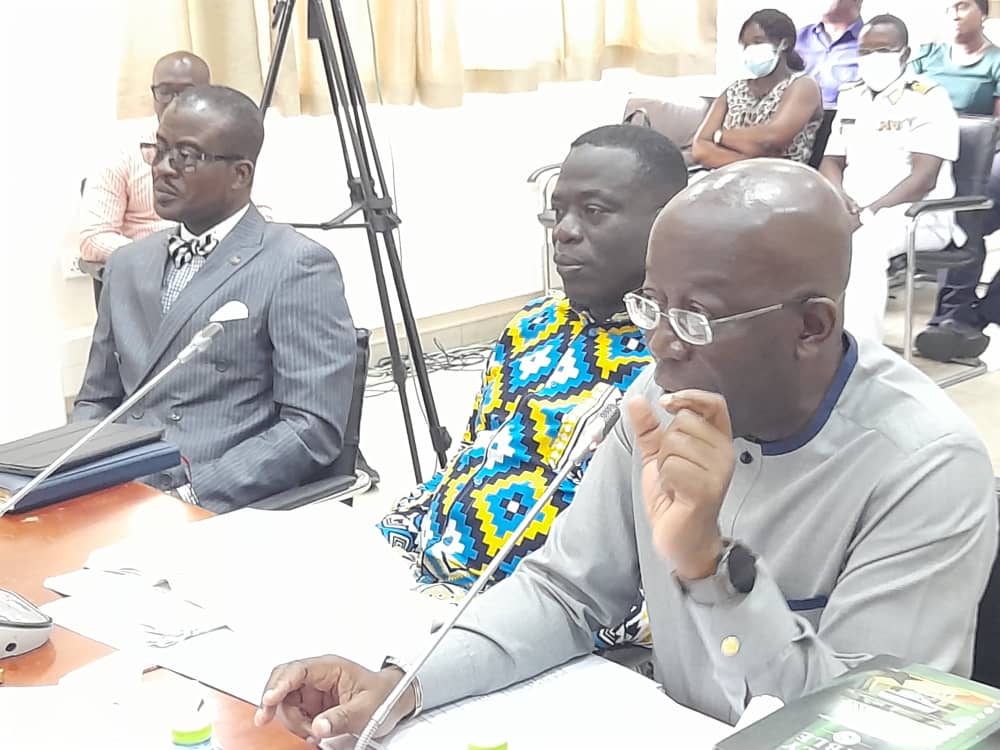
The Social Security and National Insurance Trust (SSNIT) has been able to save GH¢312.27 million as a result of the deactivation of 21,337 “ghost pensioners” from its database.
The savings follows the non-renewable of life certificates by some pensioners from April 2018 to June 2022.
The affected pensioners, who have been presumed not to be alive, failed to go to SSSNIT offices across the country to renew their pension certificates within the five-year period.
From 2018 till today, we have withheld GH¢312 million or not paid out and people have not come out to collect their pensions,” the Director-General of the SSNIT, Dr John Ofori-Tenkorang, disclosed this when he and other management member of the trust appeared before the Public Accounts Committee (PAC) of Parliament today.
They were responding to the Auditor-General’s (A-G) report on various infractions flagged against the trust between the periods of 2017 to 2019.
They also answered infractions pertaining to issues related legacy debts and judgement debts spanning more than two decades, among others.
Infractions
Dr. Tenkorang revealed this when he responded to a question by a member of the PAC committee, Bawa Muhammad Briamah, who noted that SSNIT was to validate pensioners over 72 years on their birthdays every year.
The MP said after the A-G had conducted audit from March 2018 to December 2018, about 300, 967 transactions to pensioners over 72 years who had not reviewed their life certificates led to the payment of GH¢153.6 million.
He quoted the auditors to have attributed such payment to ineffective internal reviews or checks on the monthly pension data against the pre-requisite controls and regulations to expose shortfalls of the operational business suite (OBS) and therefore sought to know the status of such infractions.
Tracking pensioners
Responding, the D-G said after the age of 72 or 75 years, pensioners were deemed to have exhausted their guaranteed pension entitlement and therefore if they passed away SSNIT was required to stop all payments to a pensioner and any beneficiary.
That, he said, was prior to 2018 when pensioners were supposed to go SSNIT and prove that they were alive every three years for their details to be coded into their trust’s existing pension administration system.
Dr. Tenkorang, however, said in 2018 the trust changed the frequency at which pensioners were to visit to renew their certificates.
We changed the frequency to one year in order to minimise the risk that somebody could have passed away and we pay the person for three years until the next renewal date.
“It is that one year that our system was not able to register because the system was inflexible. Since then, we have developed a workaround to track these pensioners and make sure that the renewals are done.
If the renewals are not done, we have gone to deactivate pensioners because they would be presumed to have expired and if they resurrect, we restore the payment,” he said.
He appealed to Ghanaians who knew pensioners who might be incapacitated and could not go and verify themselves at SSNIT offices to call for support.
“We will go to wherever they with our biometric device and validate them,” he said.
Overseas support
On pensioners who were domiciled overseas, Dr Tenkorang urged such pensioners to alert the trust of their situation.
He said once the trust was alerted, such pensioners would be asked to visit any Ghana mission to thumbprint and have their details authorised prior to been sent to the trust in Ghana.
We have in our archives thumbprints of all members and they can do ‘DHL’ their details to us so we do the march of their biometric details to solve their problems,” he assured.
Debt recovery
On non-recovery of the GH2.8 billon loans SSNIT granted to various companies between 2009 and 2016, Dr. Tenkorang said the trust had developed a new investment policy document to guide such transactions in the future.
The document, which was being reviewed by National Pensions Regulatory Authority (NPRA) for implementation, contained stricter and more rigorous procedures in debt funding and management, he said.
For instance, with Aluworks still had outstanding loan to repay on its loan of $10 million, a reason SSNIT was buying Aluwork’s land in exchange for working capital.
For the Ridge Royal (Oguaa Hotels), which received loans from SSNIT in 1993, 1999, 2012 and 2016, he said nothing had been recovered from the hotel so far.
Dr. Tenkorang said repayment was supposed to have started when the hotel started operating in February 2019.
COVID-19 came to adversely affect the operations of the company when business was picking up, making it extremely difficult to honour the loan payment obligation.
“SSNIT is in the process of securing a strategic partner to invest in and manage its hotels, which includes Ridge Royal,” he said.
“The process is at the stage where execution of non-disclosure agreements is being undertaken with short-listed firms. These firms (Transaction Advisor and short-listed investors) were selected through international competitive process. The debt will be considered in the new ownership restructuring,” he said.

